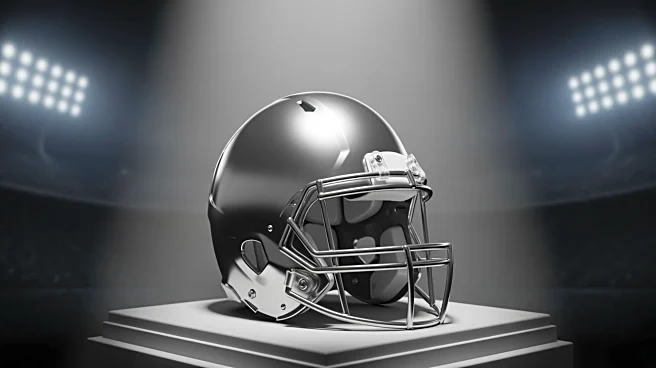What's Happening?
Paul Tagliabue, who served as the NFL commissioner from 1989 to 2006, passed away at the age of 84 due to heart failure complicated by Parkinson's disease. Tagliabue was instrumental in transforming the NFL into
a major sports league in the United States, overseeing its expansion to 32 teams and establishing it as the most-watched professional sports league. His tenure was marked by significant broadcasting deals, the establishment of the NFL's own television network, and the construction of 20 new stadiums. Tagliabue was known for his leadership during challenging times, such as the aftermath of the September 11 attacks and Hurricane Katrina, and was a strong advocate for diversity and inclusion within the league.
Why It's Important?
Tagliabue's leadership significantly shaped the NFL's current status as a dominant force in American sports and culture. His ability to foster labor peace and expand the league's reach internationally laid the groundwork for its global brand. The systems of free agency and the salary cap, established during his tenure, continue to impact team dynamics and player negotiations. His contributions to the league's growth have had lasting effects on the sports industry, influencing broadcasting, stadium development, and international expansion strategies. His legacy is a testament to the importance of visionary leadership in sports management.
What's Next?
The NFL will likely continue to honor Tagliabue's legacy by maintaining the growth trajectory he set during his tenure. His influence on the league's strategic embrace of emerging technologies and international expansion will continue to guide future developments. The NFL may also revisit and reinforce its commitment to diversity and inclusion, areas Tagliabue championed. As the league navigates new challenges, his leadership principles may serve as a blueprint for current and future executives.
Beyond the Headlines
Tagliabue's tenure was not without controversy, particularly regarding the NFL's handling of concussions and player safety. While his supporters argue he acted on the knowledge available at the time, the league has since faced significant legal and ethical challenges related to player health. His approach to these issues continues to influence ongoing discussions about player safety and the NFL's responsibility to its athletes.










